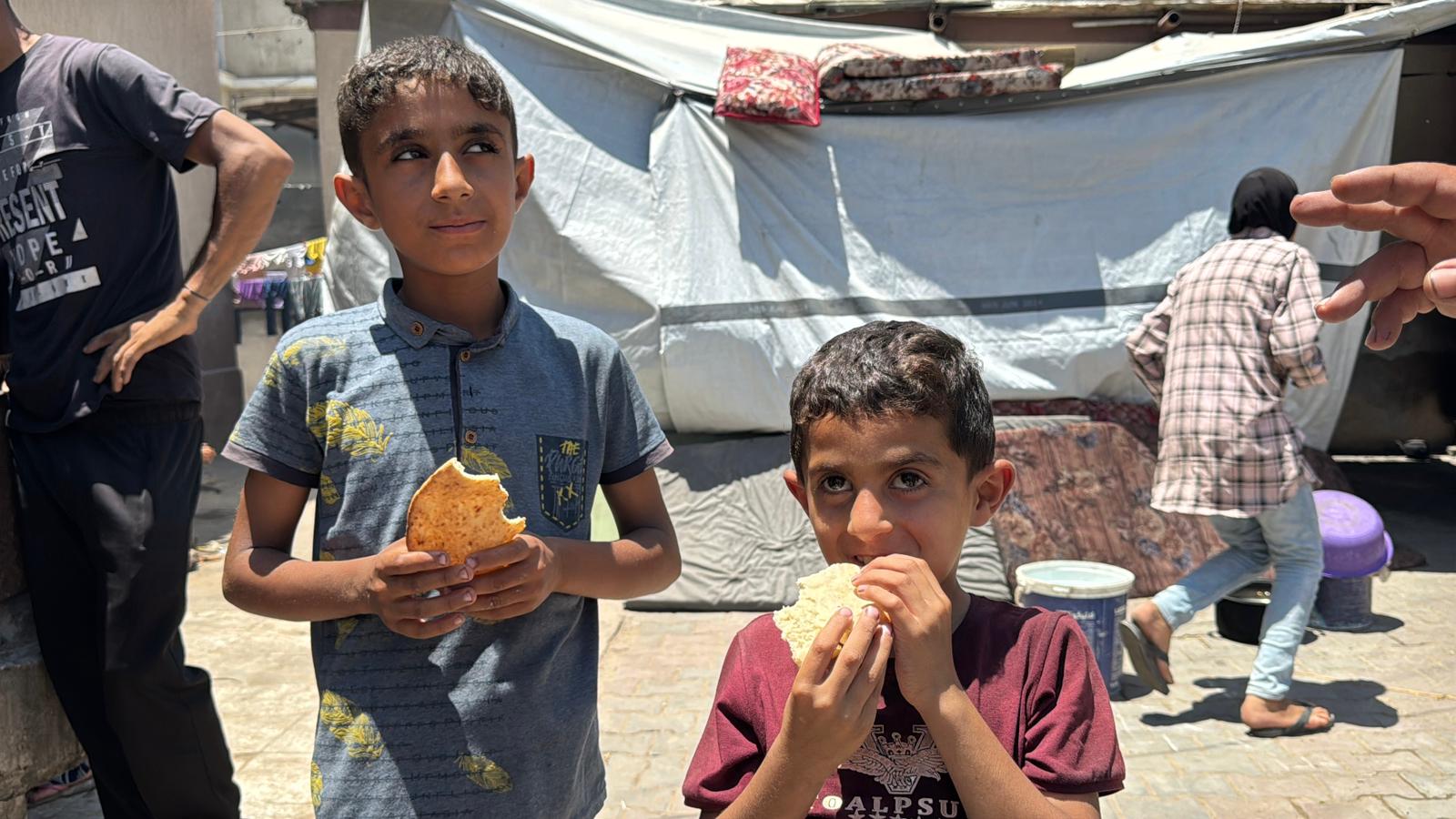
In light of the catastrophic conditions experienced by the residents of the Gaza Strip, especially those displaced in the northern part of the Strip, and through the continuous field monitoring conducted by the Palestinian Counseling Center staff, many of the basic needs of the displaced were identified, most notably the urgent need for cooking and baking utensils, given the lack of cooking facilities within the shelters. A number of colleagues, both male and female, contributed to monitoring these needs and implementing field interventions, playing a pivotal role in the success of this effort. These included Ihab Al-Ajrami, Iman Hussein, Asmaa Al-Shaarawy, the volunteer team, and photographer Mohammed Al-Qahouji, who worked diligently to alleviate the suffering of the displaced families.
In response to this need, PCC launched the “Hand in Hand, We Create a New Reality” initiative, funded by UNICEF, to provide communal ovens in shelters and displacement camps.
Despite significant challenges—particularly in transporting ovens from the factory located in Jabalia, a high-risk “red zone,” as well as difficulties related to high purchase costs and logistical hurdles—we succeeded in implementing the initiative.


A total of eight ovens were installed across five shelters:
-
Al-Maqousi Shelter – Al-Nasr Street, Bahloul Station
-
Al-Awda Camp – Behind Al-Sharq Bakery
-
Al-Maznar Area – Behind Istanbul 5 Tower
-
Informal shelters behind Sweidi Al-Nasr
-
Haret Al-Nafaq
More than 10,000 displaced individuals benefited from the initiative, including around 3,500 children.
Despite scarcity, our team managed to procure a supply of firewood, after a long search across the city. Our colleague Ihab personally transported it to the shelters, making sure the ovens could function immediately.
One implementation day stands out. We had planned to begin installation at 7 a.m. to avoid the intense midday heat. However, due to delays in retrieving the ovens from the factory—located in a high-risk area—the delivery was delayed until 1 p.m., leaving our team waiting under the sun. Still, the mission continued with determination.
To ensure the ovens were used safely and effectively, the team conducted a series of mini-meetings with displaced residents. These sessions covered safety protocols, role-sharing among families, and guidelines for proper use and maintenance.
The initiative was warmly received by displaced families, who expressed deep gratitude to PCC for addressing a core need that restored a sense of dignity and normalcy to their lives. Many called for the continuation of such community-driven interventions.

“The smell of freshly baked bread brought back a sense of stability… like a piece of our past life was returning,” said one displaced mother.
Though modest in scale, the impact of the initiative was profound—helping to ease daily hardships and bolster the resilience of families facing relentless adversity.
